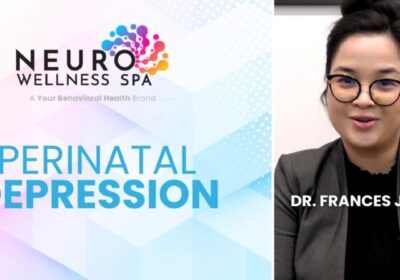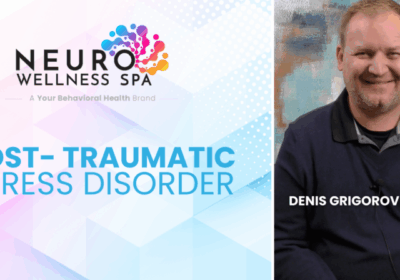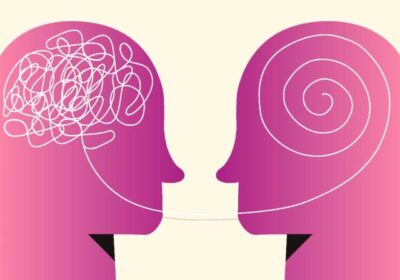November 2019 Newsletter
A Prescription for Your Plate, Five Evidence-Based Food Interventions for Mental Health

While the field of Nutritional Psychiatry is relatively new, a growing body of research supports the link between diet quality and mental health. The notion that the foods you eat may affect how you feel is gaining traction among researchers, in part due to the emerging association between inflammation and mood disorders.
As it does for several physical diseases including cardiovascular disease and cancer, inflammation appears to play a key role in major depressive disorder and anxiety disorders. Many studies have documented that certain components of foods and beverages have anti-inflammatory effects, and that diets high in these anti-inflammatory foods may help slow or prevent the inflammatory disease process.
A flurry of recent research suggests that the gut microbiome may also play a critical role in the association between diet, mental health and behavior. Often referred to as the ‘second brain’, the gut is the only organ in the human body with its own independent nervous system.
In addition to its unique ability to communicate with the brain, the gut is filled with bacteria responsible for the production of several neurochemicals, including about 95% of the body’s supply of serotonin, used by the brain to regulate both physiological and mental processes.
Numerous studies have shown that the gut-brain axis is a two-way street. Just as the gut affects the brain, the brain can also exert profound influences on the gut microbiome. Perhaps the most well-documented of these findings suggests psychological stress can suppress beneficial bacteria throughout the gut.
Although a future in which analyzing patient gut bacteria to treat mood disorders is still likely far away, practical applications of these gut-brain findings are emerging. From airplanes to restaurants, mood-boosting menus aim to improve patrons’ wellbeing, support fliers’ immune systems and mitigate passenger jetlag. While those goals may seem lofty, research has indicated that certain dietary changes do indeed have psychopharmacologic effects, including:
Adding vitamins and essential fatty acids
In Nutritional Psychiatry, additions of dietary vitamins and essential fatty acids are the best studied interventions. Due to their modulation of neurotransmitters and their anti-inflammatory effects, omega-3 fatty acids, eicosapentaenoic acid (EPA) and docosahexaenoic acid (DHA) have been the focus of many of these dietary supplementation studies. One placebo-controlled meta-analysis of EPA and DHA supplementation in the treatment of mood disorders found a significant effect with EPA being more effective than DHA. While supplementation of folic acid, vitamin E and vitamin D have also been investigated, the results have been mixed.
Removing substances
Some clinicians and researchers use elimination diets in children diagnosed with attention-deficit/hyperactivity disorder (ADHD) and autism spectrum disorders (ASD). For ADHD, the elimination of dietary artificial food colors has been shown to have significant effects in children with food sensitivities. While gluten and/or casein are often eliminated for ASD, there has been little to no evidence documenting the efficacy of this dietary change.
Adopting the Mediterranean diet
The Mediterranean diet is characterized by a high intake of anti-inflammatory foods including vegetables, legumes, fruits and nuts, unrefined grains and unsaturated fats. One randomized-control trial, which assigned patients with severe depression to either 7 counseling sessions to adopt the Mediterranean diet or 7 social support sessions, found a significantly higher remission rate in the diet group: 32% vs. 8%. Another study found that adherence to the Mediterranean diet may also help prevent a series of other brain diseases including cognitive impairment.
Supporting the gut microbiome
There is increasing evidence that, in addition to their role in metabolism, gut bacteria may have significant effects on the brain. Diet plays an important role in shaping the microbiome, with evidence showing that dietary changes can induce large microbial shifts within 24 hours. While the probiotic market has grown rapidly, regulation of supplements is limited as is the clinical evidence of their efficacy.
Fasting and/or adopting the ketogenic diet
The ketogenic diet is characterized by a high fat and low carbohydrate intake. For children with treatment-refractory epilepsy, fasting and adopting the ketogenic diet have been found to have over a 50% response. While controlled trials are needed, preliminary case studies suggest these dietary changes may be effective in the treatment of psychiatric disorders.
If you’d like to learn about other nutritional interventions for those with mental health conditions, or to make a referral, please call 1-877-847-3984 or contact us here.
Believe it or Not!?
Health Hystory
In 1943, the U.S. Department of Agriculture (USDA) released a dietary guide featuring 7 basic food groups—and butter was one of them. Intended to help American diets during World War II rationing, the guide recommended Americans consume butter or margarine every day to “avoid that tired feeling”. It’s likely that the guide’s recommended fat intake helped Americans absorb more fat-soluble vitamins during a time marked by nutritional deficiencies.
An Exclusive Q&A with Justin Bethoney, NP Integrative Psychiatric Nursing, Inc.
-
How did you first become interested in integrative medicine and what is integrative medicine to you?
Initially, I didn’t describe my practice as integrative medicine until recently, but integrative medicine is a term I use now because it’s so well-recognized. Under the big umbrella of integrative medicine, there are many different philosophies, approaches, and practices. From one integrative practitioner to another, integrative medicine can look very different. What I initially discovered in nursing school wasn’t integrative medicine, but functional medicine. While doing research for my capstone project on the topic of ADHD, I came across the concept of epigenetics. Epigenetics is really interesting and has many implications for how we think about health. When epigenetics came along, it showed we have more control over risk factors for disease than were previously thought. This put the responsibility back in our hands to exercise, sleep better and think more consciously about what we eat.
For me, integrative medicine is taking a strong look at your environment and what you’re faced with every day. In my practice, what I provide for people is not just medications or just therapy, but a holistic treatment plan. I consider the whole person and spend more time with each patient to allow for that. Although I can prescribe medications, that’s just one piece. I examine lifestyle and look for any imbalances that may be contributing to symptoms as well, things like anemia, inflammation, digestive dysfunction, nutrient deficiencies.
-
In your experience, does any one mental health condition benefit more from an integrative approach than another?
When I began attending functional medicine conferences, I learned about a 19thcentury physician named William Osler. A lot of his philosophizing about the practice of medicine has been adopted by the Institute of Functional Medicine. One of his well-known phrases that has always struck me is, “it is much more important to know what sort of patient has a disease than what sort of disease a patient has.”
So, the way that I work is by reviewing a patient’s environmental factors including how their body is functioning, how they’re managing their blood sugar, if they are chronically inflamed, what’s the quality of their sleep hygiene, if their gut bacteria is balanced, and more. If a patient isn’t sleeping well, or has food sensitivities that they aren’t aware of, then that person will have all of this pressure towards disease. Then, it comes down to genetics and whether a patient may have a strong propensity for one illness or condition over another.
-
Managing mental health can be particularly difficult during the holidays. How do you counsel your patients during this season?
In every season, I am always encouraging patients to practice self-forgiveness. For example, I just had a second child who is eight weeks old today, so I’m not sleeping as well as I used to, I eat muffins for breakfast because I don’t have time to cook, and I’m always rushing and feeling stressed. Obviously, I don’t feel my best nowadays, but what helps me is that I am able to wake up in the morning and understand why I don’t feel well and have some forgiveness for it. I know that this is a unique time in my life, and I’m not able to take care of myself the way I should. We all need a healthy dose of self-forgiveness and knowing that things aren’t permanent- stress is temporary and we’ll get through it- but when the stress dies down that’s when it’s time to get back to selfcare.
Where We’ve Been…
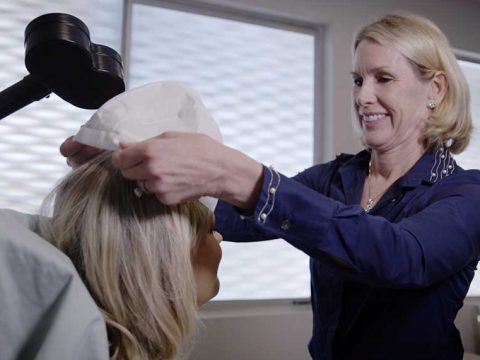
Talking Therapy Podcast Features Dr. Martha Koo, M.D.
October 18, 2019
Our Founder and Medical Director, Dr. Martha Koo, MD, joined John and RJ’s Talking Therapy podcast to share about how TMS works and how it can help those struggling with depression and other mental health conditions. To listen: http://talkingtherapy.libsyn.com/podcast

4th Mental Health Meet Up Dinner
October 21, 2019, Tin Roof Bistro
It was such a privilege to host over 50 local clinicians at Tin Roof Bistro for our 4th mental health meetup dinner. Thank you to all of our attendees who joined us for networking and a powerful presentation on working with families in therapy by R.J. Thomas, LMFT.

Torrance Memorial Community Helpline Prevention
October 29, 2019, Torrance Memorial
Dr. Martha Koo presented on bipolar disorder to the Torrance Memorial Community Helpline. Education is an important component of ending the stigma around mental illness and improving care. We are grateful for this strong community of mental health providers and their support services in the South Bay.

Kick Off to Pride
November 1, 2019, Palm Desert, CA
Neuro Wellness Spa Palm Desert was honored to sponsor the Kick-Off to Pride event hosted by Greater Palm Springs Pride. It is always a pleasure to partner with incredible organizations in our community, especially those advocating for equality and diversity while dismantling stigma.

Suicide Awareness Training
November 2, North Torrance
Neuro Wellness Spa’s clinical team joined our friends at Clear Recovery Center for a professional development session at our new north Torrance office. We are grateful to Didi Hirsch Mental Health Services for sharing their experience and expertise in suicide prevention.
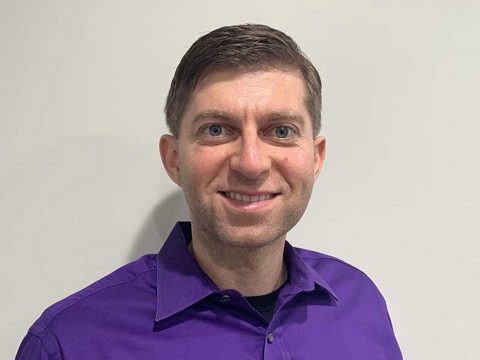
Torrance Open House Welcoming Dr. Simon Faynboym, M.D.
November 4, 2019, 3600 Lomita Blvd. #22, TOrrance, CA 90505
It was a wonderful open house at our South Torrance location where we welcomed and celebrated our newest provider, Dr. Simon Faynboym, M.D.. We were thrilled to see so many of our friends, colleagues and prospective patients join us for tours, refreshments and giveaways. Thank you to all of those who stopped by for the open house!
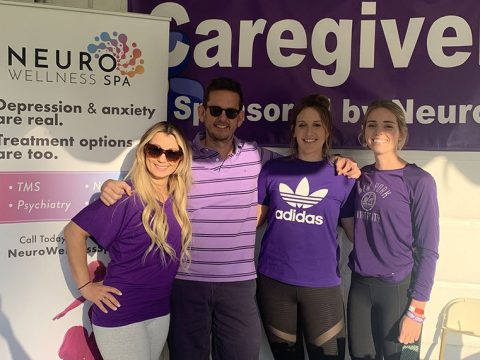
Walk to End Alzheimer’s
November 11, Palm Desert, CA
We were thrilled to participate in the Walk to End Alzheimer’s, the world’s largest event to raise awareness and funds for Alzheimer’s care. It was a pleasure to sponsor a caregiver booth and show our support to family members who devote countless hours to providing care to their relatives.
…Where We’re Going
Ribbon Cutting
When : January 30, 2020 at 8:30AM
Where : Neuro Wellness Spa Torrance, 18119 Prarie Avenue, Torrance CA 90504
What : Clear Recovery Center and Neuro Wellness Spa are pleased to announce the grand opening and ribbon cutting of their newest location in North Torrance. We are excited to expand and collaborate to bring exceptional patient care and cutting-edge treatment to those struggling with mental health disorders and addiction throughout the South Bay.
We’re more than a newsletter. We give tours, offer consultations and can even speak at your event.




